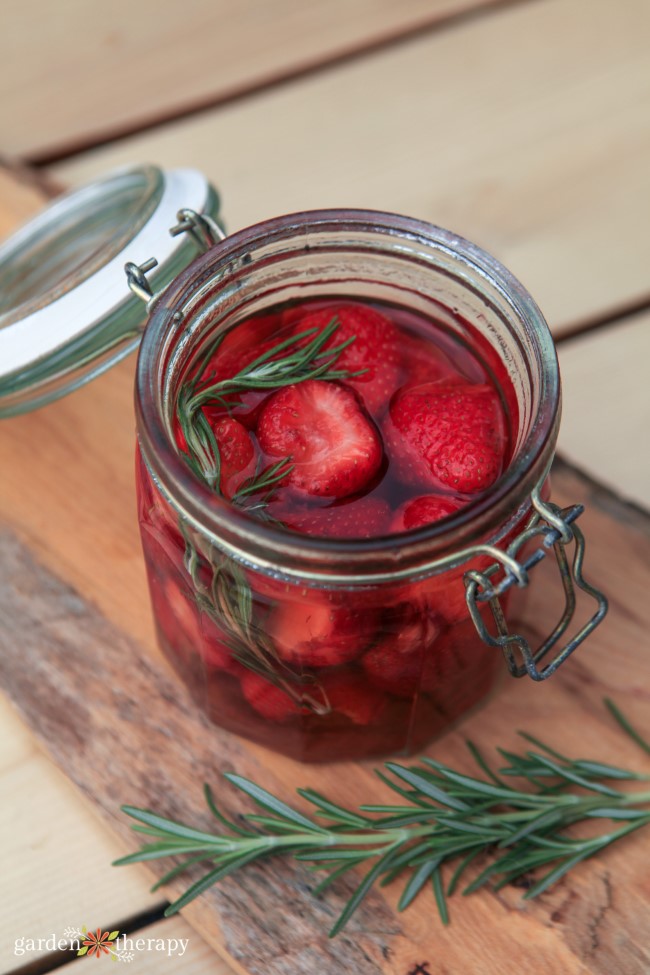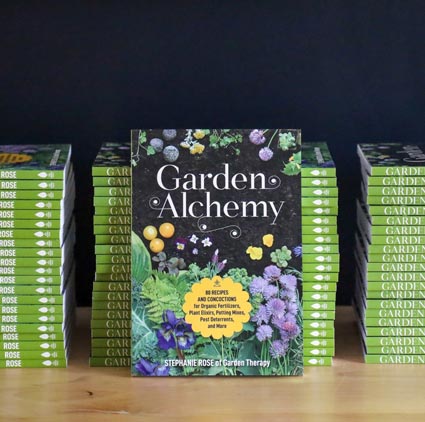Does vinegar kill weeds? Vinegar is pushed as THE natural, powerful weed-killing alternative to chemical herbicides. But just how effective is it? While there’s some truth to using vinegar as a weed killer, there’s a lot more you need to know before spraying it in your garden.
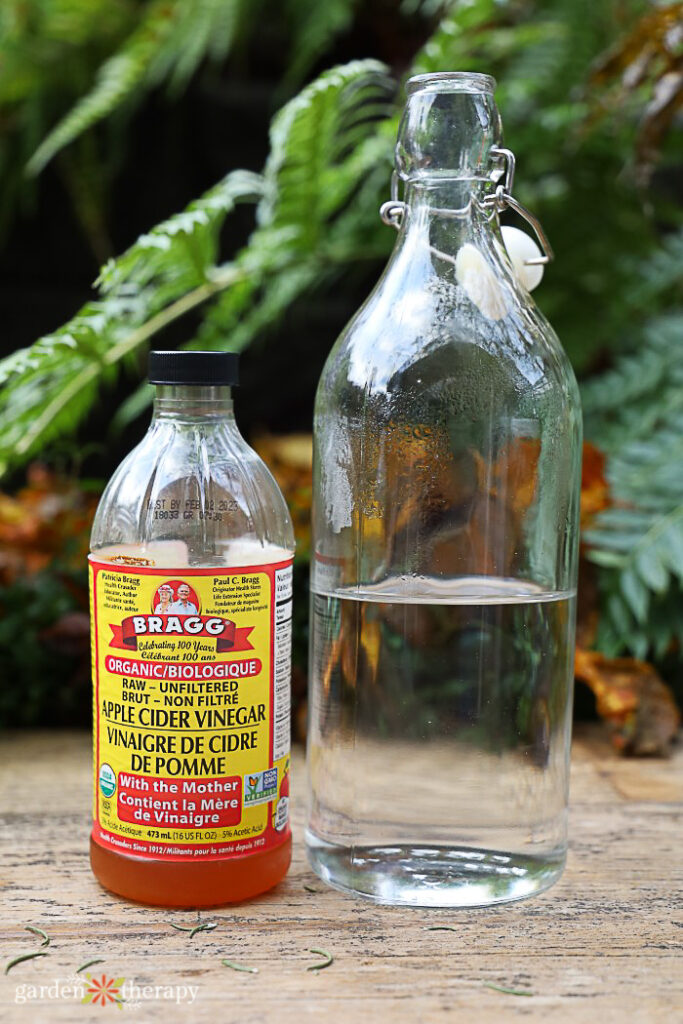
More and more people are turning away from herbicides in pursuit of organic methods for getting rid of weeds. For every person who switches to organic gardening methods, a worm does a little happy dance (wiggle).
I’m all for the push for organic gardening and practice it extensively in my regenerative gardening approach.
All over the internet, I see people suggesting the powerful properties of vinegar as a substitute for using chemical weed killers. It’s touted as the natural alternative safe for gardeners and plants.
Does vinegar kill plants? Let me be the first to tell you it isn’t the magical, natural weed killer you’ve been looking for. In fact, it’s far from it.
While vinegar technically works as a weed killer, there’s much more to the story. Let me break it down for you.
- What is Vinegar?
- Will Vinegar Kill Weeds?
- The Bad Side of Using Vinegar to Kill Weeds
- Rethink the Weeds in Your Garden
- I Accidentally Sprayed My Plants With Vinegar. Now What?
- How I Use Vinegar Naturally
- Frequently Asked Questions About Using Vinegar to Kill Weeds
- Other Common Household Ingredients to Consider
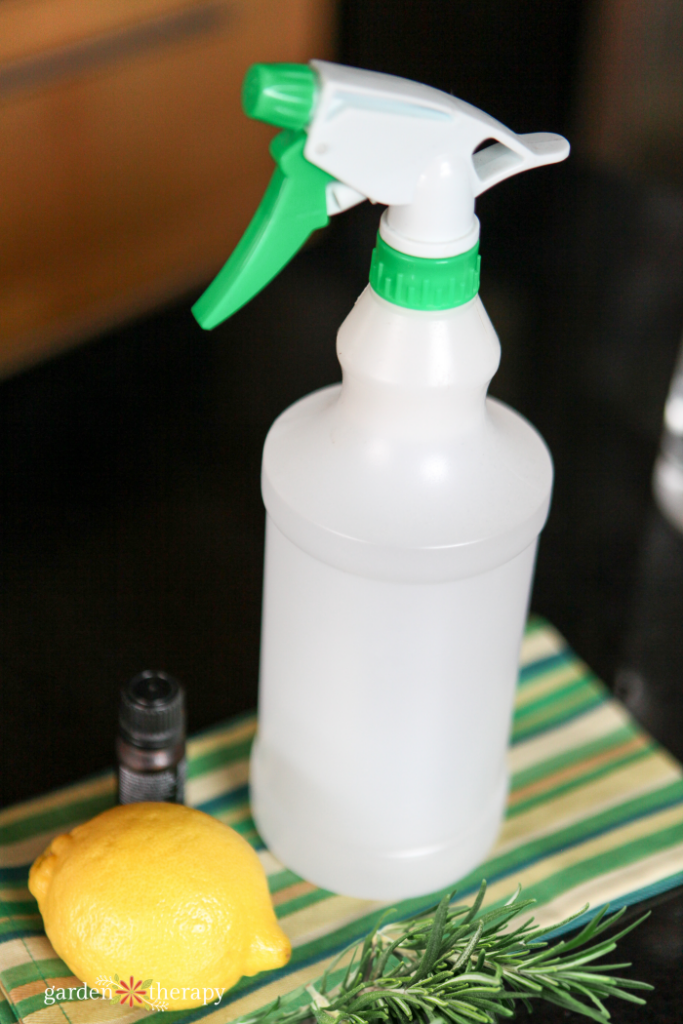
What is Vinegar?
Vinegar is made by fermenting water and acetic acid. Our household vinegars are diluted vinegar and contain anywhere from 5-7% of acetic acid. Most vinegar you use for cooking and around the house is 5%, while cleaning vinegar is 6%, and picking vinegar is 7%. That’s about as potent as it gets inside the home!
Horticultural vinegar can range from 15-20% potency. It’s hazardous to use, as contact with it can burn your skin. It’s also very easy to cause damage to surrounding plants and soil when you use it. In terms of going the natural route, it’s not much better than other herbicides.
Vinegar can harm plants by destroying the cell membranes. Essentially, it burns any part of the plant that it touches—only those parts of the plant that are in direct contact with the vinegar are affected by the vinegar.
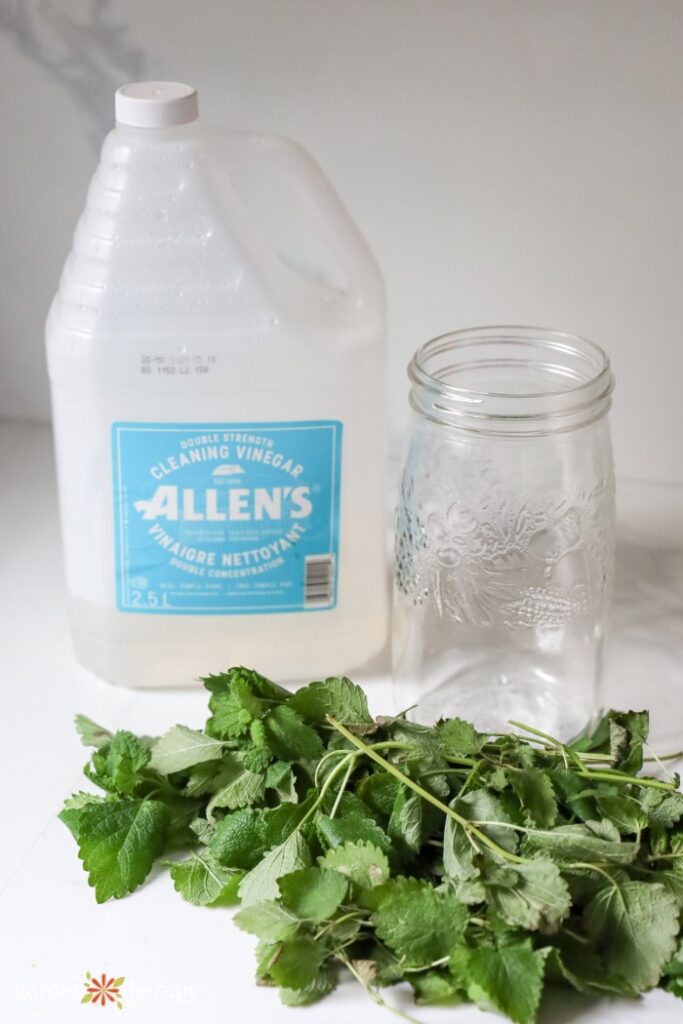
Will Vinegar Kill Weeds?
Because white vinegar is an acid, it can be effective at killing certain plants and is a lot gentler than using commercial herbicides. One study found that it is very effective at killing weeds in their first two weeks of life. For older weeds, it found vinegar to have an 85-100% kill rate.
While it’s not going to be toxic to humans, you still want to use vinegar very carefully if you want to use it to kill weeds. The potency will depend on how much you dilute it.
Vinegar spray is usually not a one-time application. You need to continuously apply it for it to work. While it burns the leaves, the root system remains alive and well, and the plant will grow back.
You should only ever use a bottle with the stream setting rather than the mist setting to spray the plant. You should only spray the leaves so you’re not affecting the soil beneath.
Spraying vinegar on weeds should only be done on a sunny day. Rain will quickly wash away the vinegar, potentially spreading it elsewhere in the garden where it could do more harm than good.
Now, before you get spraying, I want you to keep reading. While vinegar can kill weeds in the garden, I wouldn’t recommend it. And I’m about to tell you why.
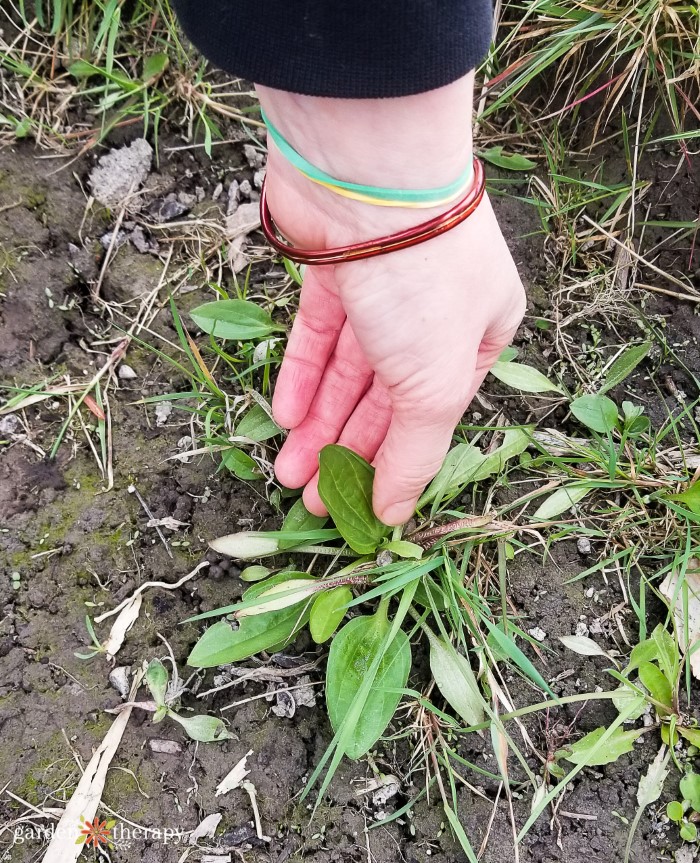
The Bad Side of Using Vinegar to Kill Weeds
Vinegar won’t discriminate against plants. The second it gets in contact with any plant, whether that’s an unwanted dandelion or your prized dahlia growing next to it, it will burn and kill the leaves of the plant.
As I mentioned before, it takes multiple applications for the vinegar to work, and you really need to get the roots for the plant to disappear entirely.
When vinegar gets into the soil, it can kill the ground nutrients essential to plant life. It can also harm microorganisms and larger wildlife, like worms or frogs, which may be sensitive to acid.
If you’re adding salt to your vinegar spray, as many do, it can also lead to salt buildup in your soil.
You’re really destroying the soil and its health, which will affect the ability of wanted plants to grow in the area.
And you know what grows well in poor soil? Weeds. More weeds.
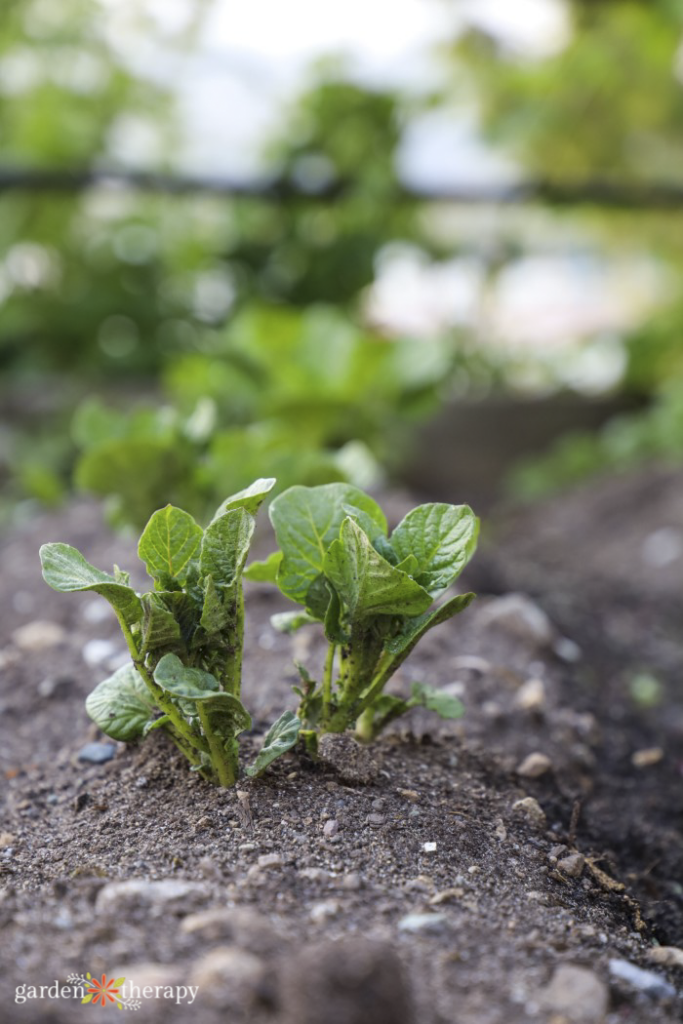
Rethink the Weeds in Your Garden
By now, you’re probably thinking that vinegar isn’t the best “natural” solution after all. It will do more harm than good and take more time than just plucking the weeds from your garden yourself.
But I wouldn’t be me if I didn’t try to plead a case for the weeds.
Weeds are simply plants that are growing where they’re not wanted. More often than not, these are wild plants and native species that naturally pop up in our gardens without invitation.
Native and wild plants are important parts of our ecosystems. They help to feed wildlife and pollinators, and microorganisms and insects when they break down.
Weeds are one of the first things to grow in poor soil. As they grow, they mine nutrients from deep in the soil and bring them back closer to the surface. Their growth can also break up compacted and clay soil. Over time, they build up the organic matter in depleted soil and allow other plants to come in and grow.
What I’m trying to say is that killing weeds isn’t always the answer. That weed may be serving a purpose and helping out your garden!
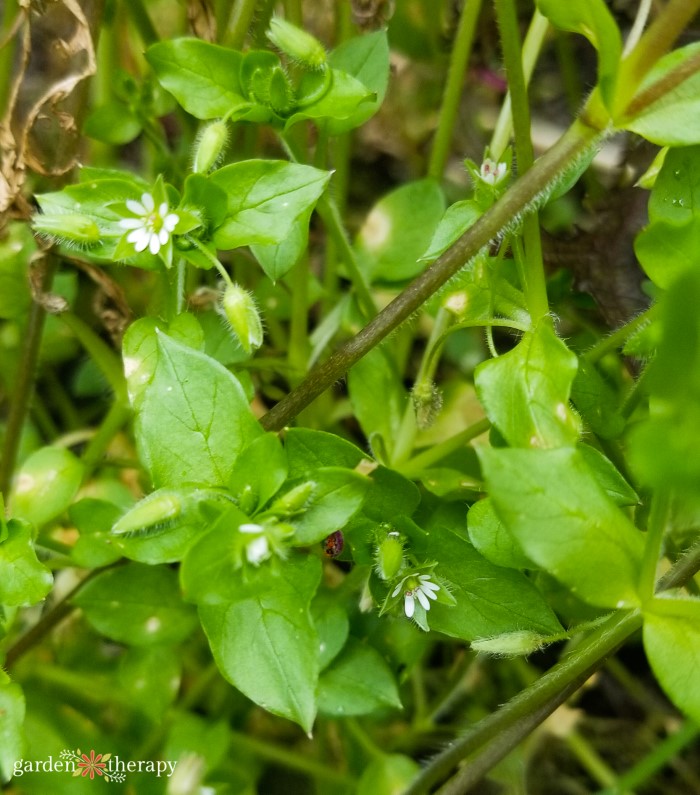
I Accidentally Sprayed My Plants With Vinegar. Now What?
Vinegar is quite effective and will work quickly to destroy your plant’s leaves. The first thing you want to do is try to rinse off the vinegar as soon as possible. Spray the foliage and saturate the soil to dilute the vinegar and prevent it from getting near the roots.
Likely, the plant will be able to bounce back perfectly fine. Well-established plants will have some leaf burn, but it shouldn’t affect the roots. If it’s a new plant, there’s a higher chance of permanent damage.
Once you see foliage that has started to die from the vinegar, cut all of it back. This will encourage new growth, and your plant will begin growing again.
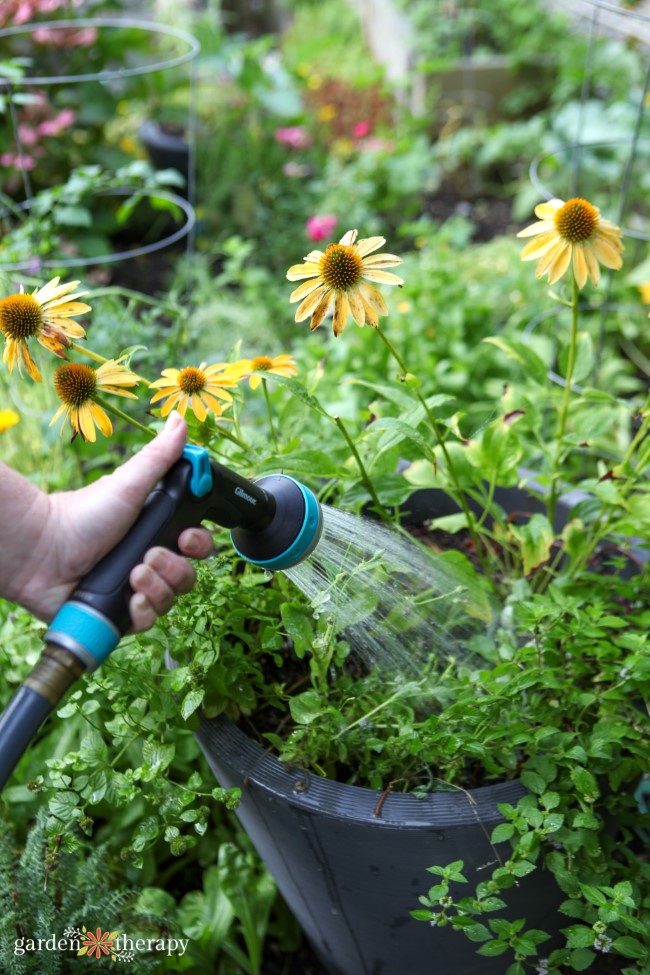
How I Use Vinegar Naturally
While vinegar doesn’t have a place in my garden, that doesn’t mean I don’t use it elsewhere. Here are a few ways I enjoy using vinegar in my natural recipes.
- Herb-infused vinegar. By infusing fresh and dried herbs in vinegar, the liquid takes on the herb flavour. They’re great for salads, dips, and to give as gifts!
- Vinaigrettes. I make all kinds of fresh vinaigrettes from the garden, including chive blossom, fresh herbs and nasturtium, and strawberry flavours.
- Pickling. We couldn’t pickle without vinegar! One of my go-to’s is shishito peppers, as well as these radishes.
- Cleaners. Vinegars is a natural bleach alternative since acetic acid is great for disinfecting and cleaning. I use it as the base for my all-purpose lemon balm cleaner and my homemade glass cleaner. Just keep in mind that vinegar can dull the finish on porous materials like granite, tiles, and hardwood.
- Herbal hair rinse. The apple cider vinegar in this recipe helps to balance your hair’s pH, which has been affected by too many hair products. It helps to prevent unwanted hair breaking and helps your scalp maintain a healthy amount of oils.
Frequently Asked Questions About Using Vinegar to Kill Weeds
Household white vinegar is what most home gardeners use for killing weeds. White vinegar has 5% potency, while cleaning vinegar has 6%.
Horticultural vinegar can also kill weeds and is the most effective, but it should not be used by home gardeners. It can cause bad burns and easily damage a whole garden when used incorrectly.
Salt and dish soap are added to vinegar to create a weed-killing spray. One cup of salt per gallon of vinegar, alongside 1 tbsp of dish soap. While this can kill weeds, it’s only a temporary solution and can affect surrounding plants and soil.
Vinegar is most effective at killing moss since it has a shallow root system. When spraying moss with vinegar, just keep in mind where that vinegar will spread. Are there nearby plants and wildlife that may be affected by the vinegar?
Upon contact, vinegar will kill blades of grass. However, it won’t last. Grass has a strong root system that the vinegar won’t get it. It would require many applications of vinegar to kill grass, and it’s not as effective or efficient as simply pulling or digging out the grass.
You’ll see the effects of spraying vinegar on foliage within 24 hours of application. However, the root system will likely still be intact and would take multiple applications to die.

